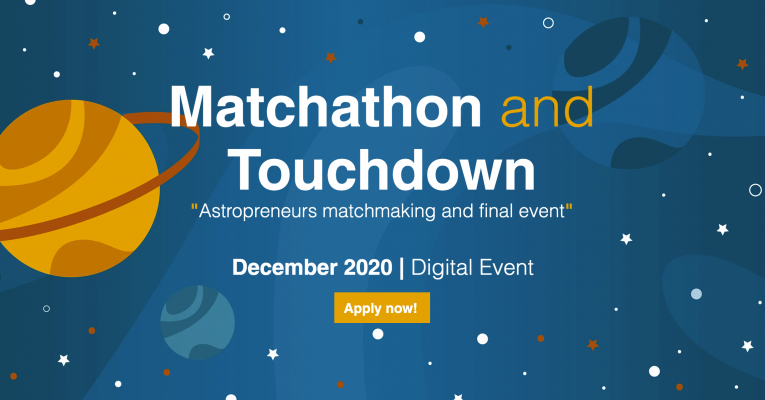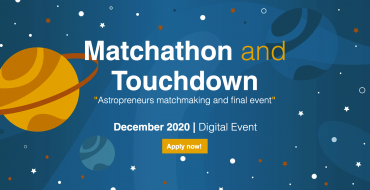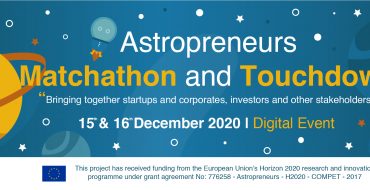Astromatchathon connects the dots
Start-ups, corporations and investors agree, to succeed in space, you must first connect the dots – which is what yesterday’s AstroMatchathon did.
“The most important thing is to connect, connect, connect,” said Carlos Cerqueira Director of Innovation at the Instituto Pedro Nunes and Astropreneurs project coordinator. “If you have the right team, right investors, and right connections, then the sky is literally the limit.”
Before the 175 participants logged into Swapcard and started a marathon session of virtual matching, they first got an inside look at Europe’s space economy. “The next decade will be the decade of space as it is becoming the backbone of our digital economy,” explained ESA Space Solutions’ Frank Salzgeber during his keynote address.
According to Salzgeber, that backbone consists of three vertebrae: Earth Observation, GNSS positioning, and telecommunications. “We don’t want to buy or sell anything, we want to support you – to be the giant whose shoulders you stand on,” said Salzgeber. “While we provide the space technology, it’s up to you to leverage this technology and create space-based products and services capable of solving Earth-based needs.”
A showcase of success
Many of the Astropreneurs are already doing exactly that. Take for example SuperVision Earth. Based in Darmstadt, Germany, the company is using Earth Observation data and satellite imagery to help prevent pipeline incidents and risks. Meanwhile, Spacemanic, from Bratislava, Slovakia, is on a mission to bring space closer to end-users by providing innovative, time-and cost-effective satellite-as-a-service solutions. To do this, the company has designed a range of nanosatellite platforms, components, and services that help customers get their payloads into space faster and cheaper than ever before.
There’s also Anzen Engineering, a company from Madrid, Spain, that provides specialised engineering services to the UAS (i.e., drones), aviation, and defence sectors. Backed by a team of engineering experts, the company has developed an innovative tool for safety and reliability assessments that both reduces costs and improves overall quality.
Meanwhile, Portugal-based start-up Connect Robotics is using autonomous drones to make cost-effective deliveries directly to one’s doorstep. The company’s drones were recently used to deliver critical medicines to the elderly and nursing homes located in remote areas – a project that won the praise of the National Pharmacies Association.
“Each of these Astropreneurs are a reminder that entrepreneurship is not a marathon or even a sprint – it is a decathlon,” concluded Salzgeber. “This means you must seize every opportunity you get to build your network – and that begins here at the AstroMatchathon.”
Good news for the European space economy
With that, participants joined break-out sessions where they shared ideas, created jobs, connected with mentors, and sourced talent.
By the end of the day, over 168 connections were made. We also facilitated 240 messages and 72 discussions between Astropreneurs and corporations or investors, with most meetings lasting nearly an hour.
Now, it’s up to all of our participants to go out, disrupt, and build the space economy that will define our future.



